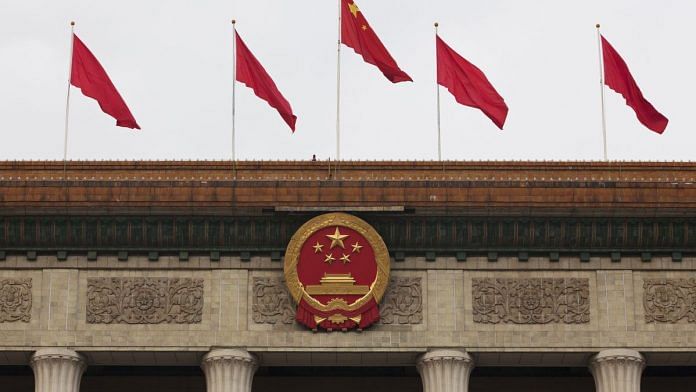New Delhi: China has earned much infamy as an opaque country that relies on its security and intelligence agencies to keep a tight grip on its citizens, dissidents and foreigners, while also indulging in practices like industrial espionage and cyber warfare.
While intelligence agencies of India, Pakistan and many countries like the US, Russia and Israel are well-known, the Chinese intelligence set-up is shrouded in secrecy. But these layers are slowly peeling off, sources in the defence and security establishment have told ThePrint.
“They operate through multiple layers, which could include media or commercial firms. It is believed that many of the Chinese tech companies and other firms have connections to the Chinese Communist Party and the military,” a source said.
However, it is difficult to verify these claims because China remains a closed and controlled society, and there is a language barrier.
Anne-Marie Brady, professor of political science at New Zealand’s University of Canterbury, has written about the main Chinese intelligence agencies in an article titled ‘Party Faithful’ published in the latest issue of Australian Foreign Affairs, brought to light in a column by Peter Hartcher of The Sydney Morning Herald this week.
Hartcher also cites the 2019 book Chinese Communist Espionage: An Intelligence Primer by Americans Peter Mattis and Matthew Brazil to say that today, China has more people engaged in its spying network than any other country.
Also read: Huawei has deep connections with Chinese intelligence service: Mike Pompeo
Ministry of State Security
The foremost Chinese civilian intelligence agency is the Ministry of State Security or MSS, which Brady describes as a “full-spectrum intelligence agency” spying on the world, similar to the Soviet Union’s KGB, which translates to ‘Committee for State Security’ in English.
Formed in 1983, the MSS is mandated with counter-intelligence, foreign intelligence, as well as domestic surveillance and intelligence for national security. It is often described as something like a cross between the American Central Intelligence Agency and the Federal Bureau of Investigation.
The MSS also has a public ‘research’ front, the China Institutes of Contemporary International Relations, which was set up as a single institute in 1980 and became ‘institutes’ in 2003.
The South China Morning Post reported that “under the National Intelligence Law enacted in 2017, the MSS — along with other intelligence authorities — has broad powers to conduct various types of espionage activities both in China and overseas, to monitor and investigate foreign and domestic individuals and institutions, and it can order them to engage in or support intelligence activities”.
It is also empowered to administratively detain those who impede or divulge information on intelligence work for up to 15 days.
Ministry of Public Security
This ministry looks after internal security dynamics and dissidents, besides counter-terrorism. It controls China’s internal cyber policy.
From administering household registration, identification cards, nationality as well as entry status and exit of Chinese and foreign nationals, to manage gatherings and demonstrations, to even border management, the MPS is a critical tool that keeps China opaque.
Also read: Sri Lanka ex-military intelligence head a ‘Chinese spy’ who was ‘blocking’ bombings probe
Joint Staff Department Intelligence Bureau
This is the external intelligence agency of China’s People’s Liberation Army.
“The JSD Intelligence Bureau also sends its people abroad as undercover operatives in companies, universities and other outfits. It has its own front organisation for welcoming foreign military officials, the China Institute for International Strategic Studies. It also operates the Institute of International Relations,” Hartcher states in his column.
Strategic Support Force
This agency of the PLA handles everything related to cyber warfare, conducting a spectrum of operations — from political interference abroad to carrying out hacking targeting military and commercial secrets, to psychological operations, commonly known as PsyOps.
The Jamestown Foundation, a Washington DC-based institute for research and analysis, notes that the SSF, as the new information warfare force of the PLA, has two primary missions.
“First, it is to provide the PLA with strategic information support through space and network-based capabilities, including communications, navigation and positioning, intelligence, surveillance and reconnaissance, and the protection of military information infrastructure,” it says.
“Second, the SSF is to conduct information operations, including space and counterspace, cyber, electromagnetic warfare, and psychological operations,” it adds.
Also read: China Study Group, the elite Indian govt body that guides policy on ties with Beijing




Good info